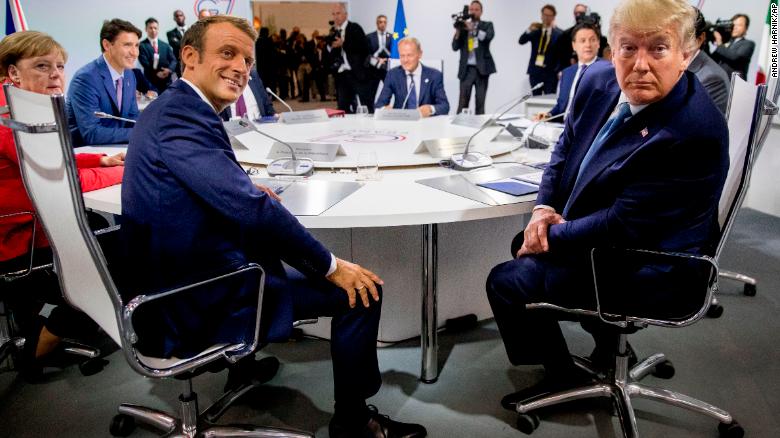
Biarritz, France – When Iran’s Foreign Minister, Javad Zarif, landed in Biarritz Sunday afternoon it appeared France’s Emmanuel Macron, this year’s G7 host, had pulled off an end run around his most powerful guest, US President Donald Trump.
For weeks Macron has been pushing Trump to soften his stance on Iran, and Trump has pushed back, last month tweeting: “I know Emmanuel means well, as do all others, but nobody speaks for the United States but the United States itself.”
In May last year Trump unilaterally pulled the USA out of the multilateral Joint Comprehensive Plan of Action nuclear deal with Iran, and this year ratcheted up sanctions on the Middle East nation to create “maximum pressure” to have it dial back its “destabilizing” regional activities.
Iran has responded by attacking and detaining oil tankers in the strategic Straits of Hormuz, breaking the terms of the JCPOA and demanding European signatories, France, Germany and the UK do more to make the nuclear deal work.
The vital waterway, through which one fifth of the world’s oil passes daily, has become a tinderbox where one wrong move might trigger a regional war.
At an informal dinner for G7 leaders Saturday night the issue of Iran came up again. Macron claimed agreement of those around the table: “We do not want Iran to have the nuclear bomb and we do not want to destabilize the region.”
On Sunday, during a TV address to the nation, Macron followed up saying: “To avoid escalation, we must continue to take initiatives.” Then things got confusing.
During an interview with a French news outlet, Macron said: “We have agreed on a joint communication and a course of action which reconciles the different positions.” But when that was put to Trump he denied any plan had his backing.
When asked by reporters if he had agreed to Macron to deliver a message to Iran on behalf of the G7, Trump said: “No, I haven’t discussed it.” Then he seemed to revert to his earlier criticism of Macron, adding: “Iran is no longer the same country as it was two and a half years ago. We will do our own outreach but, you know, you can’t stop people from talking. If they want to talk they can talk.”
All of this still hours before Zarif touched down in Biarritz, but the mixed signals spoke volumes of intense behind-scenes discussions.
As leaders met before the first session Sunday, new British Prime Minister Boris Johnson alluded to some fancy diplomatic footwork by Macron, congratulating him on dinner Saturday. “Well done. Bien joué. You’re doing well,” Johnson said. “You did very well last night, my God. That was a difficult one. You did brilliantly.”
Unclear exactly what Johnson was referring to, but evidence that Macron is intent on working to further his own agenda, and not just that of all his G7 guests.
But by Sunday afternoon, following Trump’s refusal to give Macron his backing over Iran, the French President was forced to dial back on his earlier remarks. “When I speak, I speak in the name of France but I also speak in light of yesterday’s conversation.”
Under pressure to be clear about whose support he had for his Iran initiatives, Macron seemed to indicate he was acting alone. “Initiatives will continue to be taken by each of us,” he said.
“The G7 is an informal club. There is no formal mandate.”
Precisely what Zarif will do in Biarritz is still unclear. Asked about his unexpected presence at the G7, both Trump and his Secretary of the Treasury Steven Mnuchin, replied, simply: “No comment.”
As reported by CNN
